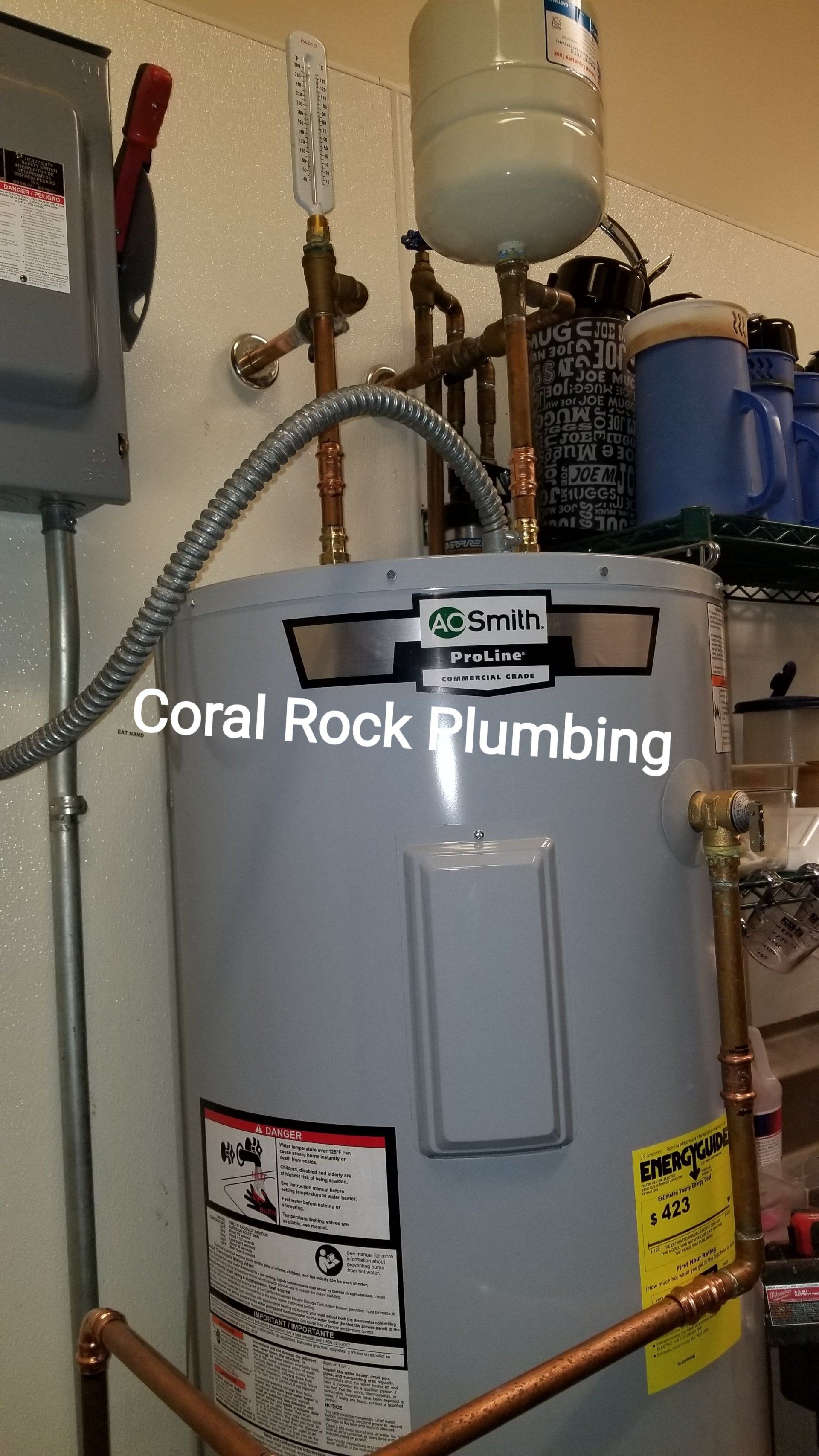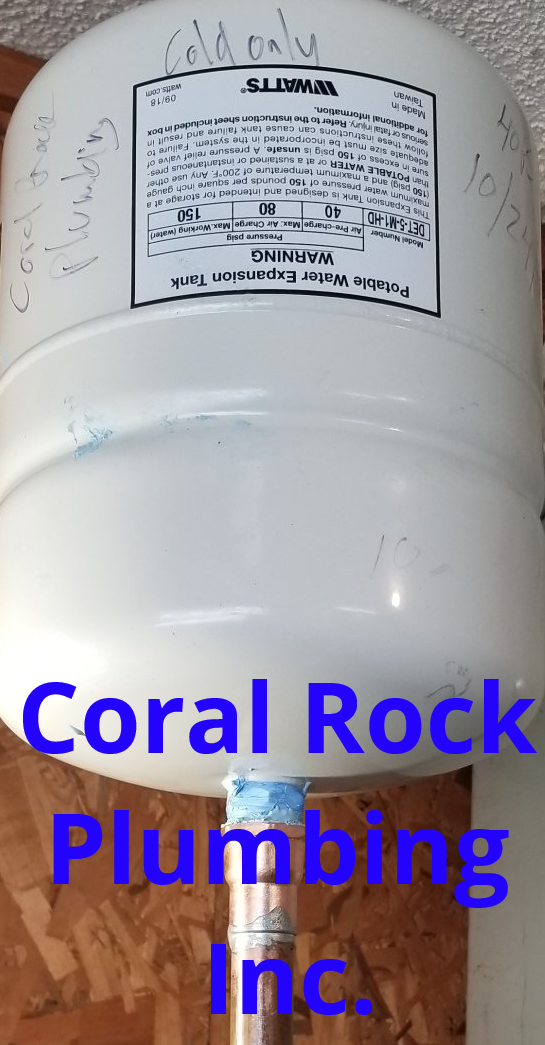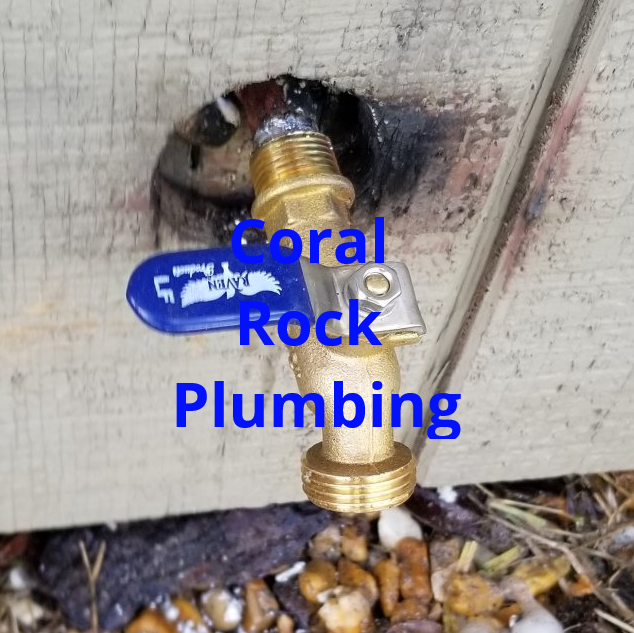By Coral Rock Plumbing Inc.
•
November 12, 2024
Choosing between a tankless water heater and a traditional tank water heater involves considering several factors including efficiency, cost, space, and specific household needs. Here's a detailed comparison: ### Tankless Water Heaters: Pros: 1. Energy Efficiency: - Tankless heaters heat water on demand, meaning they don't have the standby energy losses associated with keeping water hot in a tank. This can result in savings of up to 30% on your water heating costs. 2. Space Saving: - They are significantly smaller than tank heaters and can be mounted on walls or in confined spaces, freeing up floor space. 3. Longevity: - Generally, tankless units last longer, potentially up to 20 years or more with proper maintenance, compared to 10-15 years for tank heaters. 4. Unlimited Hot Water: - As long as the unit is sized correctly for your household, you'll never run out of hot water since it's produced on demand. 5. Consistent Water Temperature: - Offers more consistent water temperature without the fluctuations you might experience with a tank. Cons: 1. Higher Initial Cost: - The installation cost for tankless water heaters is typically higher due to the need for larger gas lines or electrical upgrades and venting systems. 2. Flow Rate Limitations: - Only a certain amount of water can be heated at one time. If multiple water outlets are used simultaneously, you might experience a drop in water temperature. 3. Installation Challenges: - Requires specific venting for gas models, and might need professional adjustments for optimal performance. 4. Scale and Hard Water: - In areas with hard water, maintenance might be more frequent due to scaling, which can decrease efficiency over time. ### Tank Water Heaters: Pros: 1. Lower Initial Cost: - Generally cheaper to buy and install than tankless units. 2. Simplicity: - Easier to install in existing homes without major modifications. They work well for homes with predictable hot water needs. 3. Higher Flow Rate: - Can handle multiple hot water demands at once without temperature drops, due to the storage of already heated water. 4. Less Maintenance: - Usually requires less maintenance in terms of water quality issues like scaling. Cons: 1. Energy Inefficiency: - They continuously heat water to maintain temperature, leading to energy loss, especially if the tank size exceeds your household's needs. 2. Space Requirement: - Takes up considerable floor space, which can be a drawback in smaller homes or apartments. 3. Limited Supply: - Once the hot water in the tank is used up, you'll have to wait for it to reheat, which might be inconvenient during peak usage times. 4. Shorter Lifespan: - On average, they have a shorter lifespan than tankless models due to sediment build-up, corrosion, and other tank-related issues. ### Choosing Between Them: - Usage Patterns: If your household has high and varied hot water demands (like multiple showers at the same time), a tank heater might be better. For smaller or staggered use, tankless could be more efficient. - Budget: If initial costs are a concern, traditional tank heaters are more budget-friendly upfront. - Space: Tankless heaters are ideal if space is at a premium. - Long-term Savings: Tankless heaters might save money over time due to energy efficiency, especially in regions with high energy costs. - Future Planning: If you're looking to stay in your home long-term and value the longevity and efficiency, tankless might be the better choice. When deciding, consider not just the costs but also your lifestyle, the size of your household, and whether you're looking for short-term savings or long-term efficiency and convenience. Consulting with a professional plumber can also provide personalized advice based on your specific situation.





